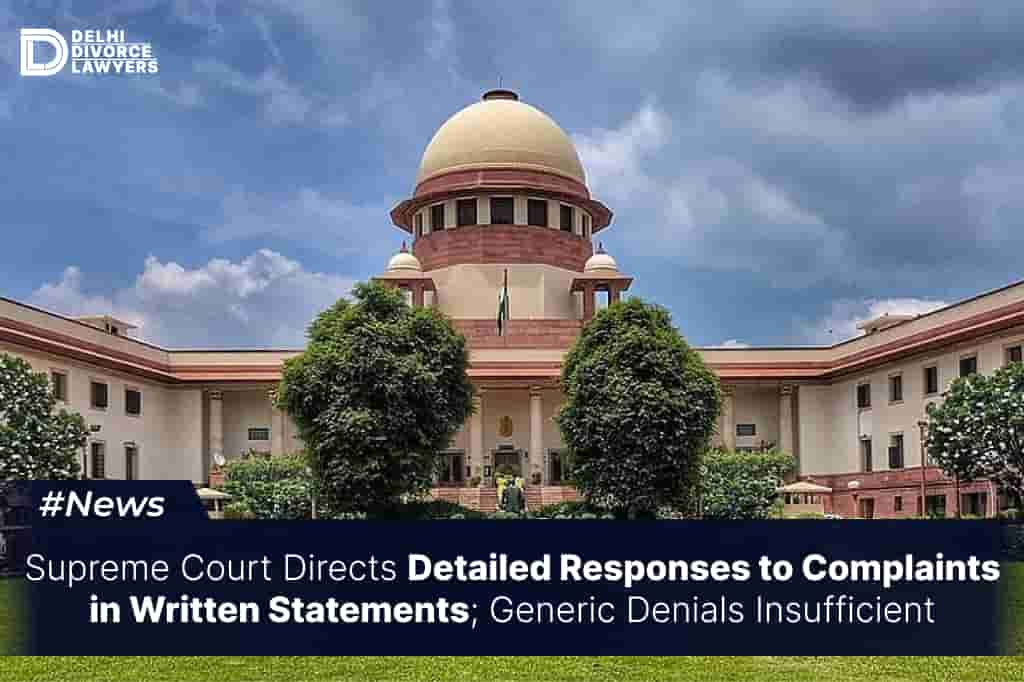The Supreme Court has criticized the practice of submitting written statements without paragraph-wise responses to complaints. This approach is seen to facilitate better understanding of arguments presented by the parties, rather than requiring the court to extract details from various parts of the complaint and the written statement.
In a recent case where an appeal arising from a civil suit was dismissed, the bench of Justice C.T. Ravikumar and Justice Rajesh Bindal highlighted that Order VIII Rules 3 and 5 of the Civil Procedure Code (CPC) explicitly demand specific admissions and denials of allegations in the complaint. They emphasized that:
A generic or ambiguous denial is insufficient. The proviso to Order VIII Rule 5 CPC states that even admitted facts may not be automatically accepted, and at the court’s discretion, they may still require proof. This exception to the general rule, dictating that admitted facts do not need further proof, was stressed.
Provisions in Order VIII Rules 3 and 5 of the Civil Procedure Code (CPC) mandate specific admissions and denials of allegations made in the complaint. This necessitates addressing the allegations paragraph by paragraph. Failure to do so could result in the respondent selectively picking lines from different paragraphs in the written statement to challenge the allegations in the complaint, causing confusion.
Preliminary objections, if any, should be raised in a separate section of paragraphs. This allows the plaintiff to respond accordingly in the replication/rejoinder, if required. Additional pleadings can also be included in the written statement as necessary. Clearly stating these facts in distinct paragraphs provides the plaintiff an opportunity to respond, helping the court comprehend both parties’ pleadings without having to sift through multiple sections of the complaint and written statement.
In a specific case, the testator left a piece of land to his brother’s daughter, prompting his widow and minor daughter to file a lawsuit seeking declaration and injunction against this provision.
The Court’s scrutiny focused on determining whether the will was surrounded by suspicious circumstances, given that the testator had omitted his widow and minor daughter from the will and instead left part of his property to his brother’s daughter.
Upon investigation, the Court found no evidence supporting claims of the testator’s poor health or inability to make sound decisions at the time of drafting the will. Consequently, the Court dismissed suspicions surrounding the will’s validity based on the alleged ill-health of the testator.
Initially, the trial court deemed the will genuine, but the First Appellate Court overturned this decision on appeal. Following further review, the Madras High Court reinstated the trial court’s ruling, overturning the First Appellate Court’s judgment.
The primary issue before the Supreme Court was to ascertain the authenticity of a will executed by the testator in favor of his brother’s daughter.
The Court noted that the testator had demonstrated awareness of his widow and minor daughter’s welfare by ensuring they were provided for in the will.
Additionally, it was observed that the expenses for the testator’s funeral were covered by the husband of the brother’s daughter, who also managed the testator’s land. In contrast, the widow and her daughter did not actively manage the property left to them.
Based on these findings, the Supreme Court dismissed the appeal.

